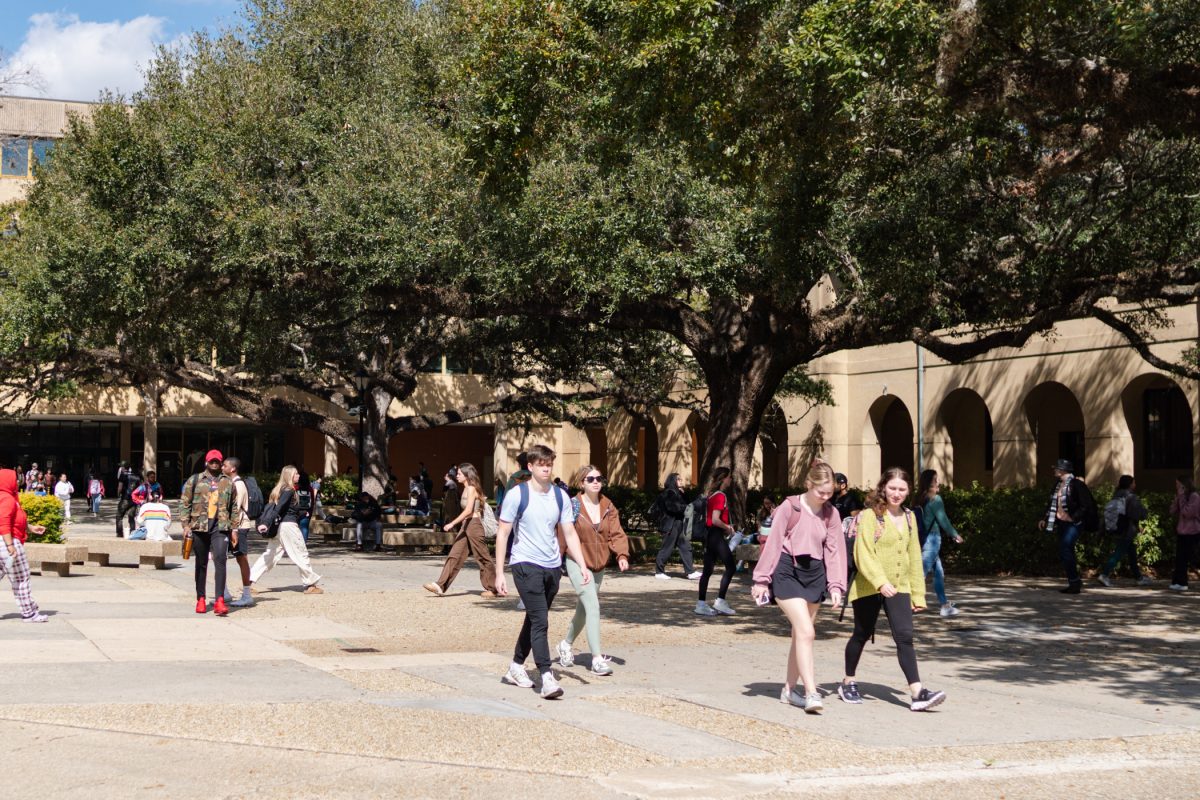Going along with national trends and the University’s initiatives, the Department of Residential life is making progress toward a greener campus.ResLife is taking an “aggressive approach” in increasing the energy efficiency of its residence halls, said Steve Waller, director of ResLife. Though the department’s approach is usually in line with the University’s, Waller said he is continually pushing programs to increase the efficiency of the buildings.”We’ve been trying to go green for a long time,” Waller said. Waller highlighted methods such as adding insulation to buildings, replacing windows and installing new lighting as methods ResLife uses to increase energy efficiency. ResLife also added motion sensors to the lights in hallways, so the lights are not on in unoccupied rooms for extended periods of time.”We have motion sensors in our buildings for the electronic lights in the hallways,” Waller said. “So if nobody is moving around day or night, all the lights turn off except the emergency lights.”ResLife specifically focused on replacing lighting in the buildings because they account for a significant percentage of energy usage.”We took all the old energy-inefficient lights and replaced them with new electronic ballast lights,” Waller said.Peter Davidson, director of the Department of Energy Services, said advances in lighting technologies provide for more efficient energy usage.”Lighting technology is much better than it was 25 years ago,” Davidson said. “We have the same or more light output at a considerably lower wattage.”Though information comparing current and past energy usage was not available, Davidson said the infrastructure of the facilities is improving, thus increasing efficiency.Many residence halls, including Herget, the Pentagon, Broussard, Blake and those in the Horseshoe, have all undergone complete lighting replacements.Herget underwent the most serious renovation last summer when a complete sprinkler system was added and beds were replaced.Waller said most of the department’s renovations are done when school is not in session because more “invasive” renovations require the residence hall to be shut down.”We can’t do it all at once,” Waller said. “I can’t pull people out of the buildings to do these renovations during school.”In addition to renovations, ResLife is also trying to engage students in being more mindful of energy costs.”We’ve worked with the Residence Hall Association to get some student participation,” Waller said. “When you go on vacation for the weekend, don’t leave the lights on.”Jeremy Bradford, international trade and finance freshman, said he is usually conscious of how he uses electricity.”I don’t really leave the lights on when I’m not in there,” Bradford said.ResLife is responsible for maintaining its own utility costs and maintaining energy efficiency, Davidson said.Davidson said Energy Services doesn’t step in and make adjustments, regarding the methods ResLife uses to maintain energy costs.”Residential Life would tend to make its own adjustments,” Davidson said. “For example, if they choose to use the air conditioning in a building that’s unoccupied, that’s up to them.”But Energy Services works with ResLife with major renovations and anything else they need help with.”If they do any building modifications, renovations or new construction, we will review those documents and get with the designers to see what energy practices are used,” Davidson said.Though Energy Services must run air conditioning in many buildings 24 hours a day, such as those with computer labs, Davidson said the department is doing a “fairly decent job” of controlling the energy usage on campus.”In all the academic areas, we’re moving toward motion sensors to turn off lights in unoccupied areas,” Davidson said. “We’ll turn the lights off and only leave emergency lights on when the building closes.”
—-Contact Ben Bourgeois at bbourgois@lsureveille.com
ResLife moves toward a greener campus
October 10, 2008







